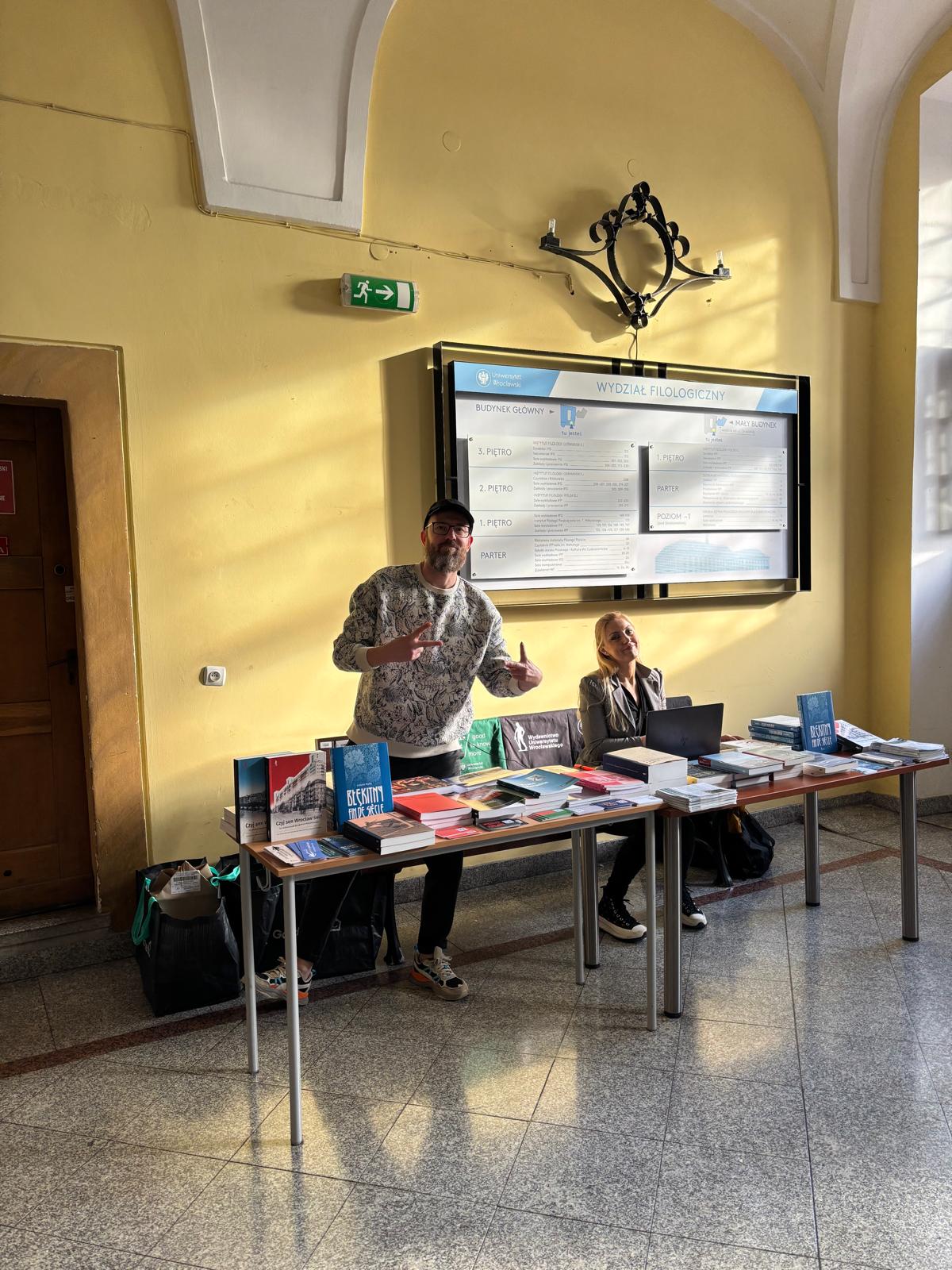
Mondays with WUWr #26
There’s a lot going on at the University of Wrocław Press and we want to keep you informed!
In our series #MondayswithWUWr, we keep you up to date with the most important events, book news and issues important to the Publishing House! We also encourage you to follow the wuwr.eu website and the Publishing House’s social media – Fb, LinkedIn and Instagram.
Books of the University of Wrocław Press in the faculties
Last Wednesday, during the VI Congress of Polish Studies Didactics, the University of Wrocław Publishing House hosted the Institute of Polish Studies with books. The book that attracted a lot of attention was, of course, Professor Justyna Bajda’s book ‘Błękitny’ and the recently published book starting a series on Romanticism ‘Romantyzm rozdwojony. Pytania nierozstrzygnięte. Anatomia nowoczesnego regionu. O związkach środowiska, kultury i pamięci’ edited by Prof. Browarny, as well as slightly older publications such as: ‘Kobieca proza science fiction w Polsce — teoria trzech kręgów’ by Maria Glowacka. Academic journals also attracted attention, e.g. – ‘Studia filmoznawcze’, ‘Prace kulturoznawcze’, ‘Literatura i kultura popularna’.
This coming Monday, the sale will take place during the Convention of the Chairs of Financial Law and Tax Law at the Faculty of Law, Administration and Economics – where novelties as well as law books and journals will be waiting for recipients.
Events organised at faculties, institutes and departments are a good opportunity to publicise scientific publications by Wrocław scientists. We strongly recommend contacting the Press (marketing@wuwr.com.pl) if you would like to have a book stand at your conference or meeting.
The role of trade unions in the creation and application of labour law
The latest issue of the Law and Administration Review has already been published at www.wuwr.pl.
The law-making role of trade unions poses significant challenges for these organisations. For the lawmaker acts on the basis and within the limits of the norm of legislative competence. It must therefore be assumed that an entity given the competence to create autonomous labour law norms will have sufficiently strong – legal and factual – legitimacy to represent the interests of workers in collective bargaining. These issues are addressed in the paper by Łukasz Pisarczyk, which opens this volume, The role of trade unions in the creation of autonomous sources of labour law – confrontational or cooperative union? The application of labour law by trade unions is, besides the creation of law, a sufficiently multifaceted and complex issue to justify the other authors of the new issue of the Law and Administration Review also focusing on company and inter-company trade union activity in this respect, leaving aside those tasks and powers of trade unions which are described as political or public law in the narrow sense of the word.
Extremely interesting articles – highly recommended!
Volume 136 (2024) | Review of Law and Administration (wuwr.pl)



